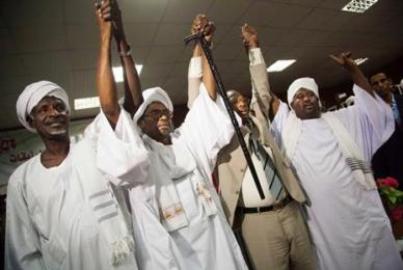More than 100 killed in tribal conflict in South Darfur
August 11, 2013 (KHARTOUM) – More than 100 people were killed in violent clashes on Saturday between two Arab tribes over land and cattle in Sudan’s East Darfur state, the two sides as local and national authorities remained silent on the incident.

The conflict escalated after the Maalia claimed that five of their men were killed by members of the Rizeigat during the first week of August.
In retaliation for the alleged attack, members of the Maalia tribe raided the Rizeigat area on 6 August, seizing some 400 head of cattle.
As the Rizeigat mobilised themselves to launch counter attacks on Maalia camps north of Kilaikil, community leaders intervened to calm the situation and a settlement was reached with the Maalia for the return of the cattle.
However, the UK-based Sudan Social Development Organisation (SUDO UK) reported that the planned handover of cattle on Saturday never took place and later that same day armed Rizeigat attacked Maalia camps in Almigailid, north of Kilaikil and Dar al-Salam, east of Al Da’ain.
Some 36 Rizeigat and 77 Maalia were reportedly killed during the fighting, while another 150 Rizeigat and 50 Maalia were injured.
SUDO UK said there are fears the fighting may escalate further, leading to more death and injuries.
It has called on both tribal groups to immediately order a ceasefire to allow community leaders and elders from each side to effect a temporary reconciliation.
“Above all civilians, especially the women and children from both sides should be protected”, said SUDO UK chairperson Mudawi Ibrahim Adam.
Both the Rizeigat and the Maalia are pastoralist tribes, based in East Darfur. The centre of Rizeigat territory is in Al Da’ain town, the capital of East Darfur, while the Maalia centre is in Adila, the second largest town after Al Da’ain.
Tribal fighting has become the major source of insecurity in Darfur since the beginning of the year, forcing over 300,000 people to flee their homes.
In a report to the UN Security Council (UNSC), the hybrid African Union-UN peacekeeping mission in Darfur (UNAMID) dedicated three pages to the issue of tribal clashes, which generally erupt over land ownership.
Observers agree that clashes typically occur between tribal groups that in the past fought against rebel forces alongside the government and have strong militias.
Analysts also underline that the emergence of strong militias eroded the authority of tribal leaders as they can no longer challenge the militia chiefs who have money and means provided by the army and security services.
Different officials in Darfur including the head of the regional authority, Tijani El-Sissi, said that tribal violence is among the biggest threat to ongoing efforts to implement a peace document signed by two former rebel groups in the region.
(ST)
